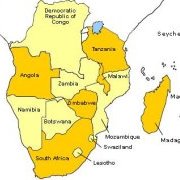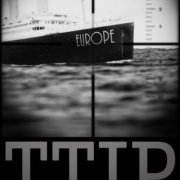21-Jan-2014
The Independent
The European Commission is to rethink its approach to a controversial US trade deal which campaign groups in the UK have warned would fundamentally erode Britain’s sovereignty.
17-Jan-2014
The Australian
An American investor plans to invoke the US-Australia Free Trade Agreement to prevent the NSW government cancelling a coal exploration licence that the Independent Commission Against Corruption said is tainted by corruption and should be expunged.
4-Jan-2014
Public Radio International
Last month, a judge ruled that the Ecuadorians can pursue their case against Chevron in Canada.
4-Jan-2014
Wall St Journal
An international arbitration tribunal in The Hague hearing a claim from Chevron Corp. against Ecuador pushed back a scheduled hearing to Feb. 7 from Jan. 20 and called on both parties to meet in Washington on Jan. 20 instead.
2-Jan-2014
The Hindu Business Line
In the last couple of years, South Africa has become the unlikely champion of the anti-BIT movement.
28-Dec-2013
Democracy Now
A court in Canada has ruled Ecuadorean farmers and fishermen can try to seize the assets of oil giant Chevron based on a 2011 decision in an Ecuadorean court found it liable for nearly three decades of soil and water pollution near oil wells, and said it had ruined the health and livelihoods of people living in nearby areas of the Amazon rainforest.
19-Dec-2013
Global Legal Post
In a victory which may have major ramifications for international law, US law firm King & Spalding has won a $250 million arbitration case for Romanian company Micula against the Republic of Romania.
18-Dec-2013
Economic Times
India has introduced provisions in the just-concluded bilateral investment protection and promotion agreement (BIPPA) with the United Arab Emirates to ensure that only executive decisions can be challenged and that too within a stipulated period.















